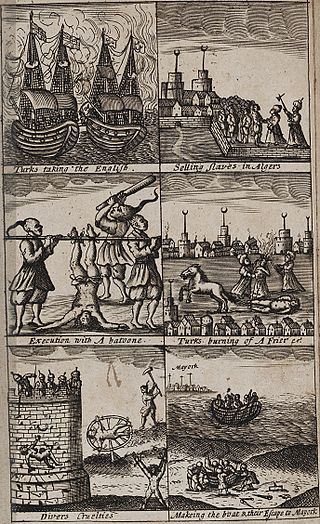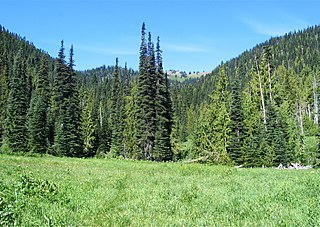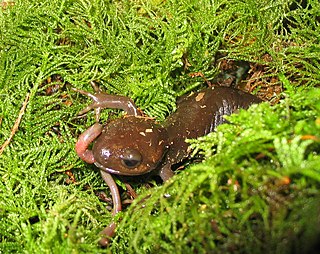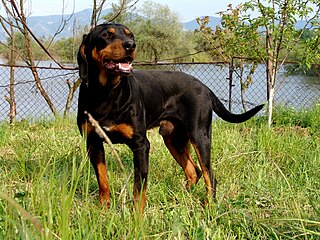Related Research Articles
Flesh is any aggregation of soft tissues of an organism. Various multicellular organisms have soft tissues that may be called "flesh". In mammals, including humans, flesh encompasses muscles, fats and other loose connective tissues, but sometimes excluding non-muscular organs and typically discarded parts. More generally, it may be considered the portions of the body that are soft and delicate. In a culinary context, consumable animal flesh is called meat, while processed visceral tissues are known as offal.

Cruelty is the pleasure in inflicting suffering or the inaction towards another's suffering when a clear remedy is readily available. Sadism can also be related to this form of action or concept. Cruel ways of inflicting suffering may involve violence, but affirmative violence is not necessary for an act to be cruel.
This is a list of American words not widely used in the United Kingdom. In Canada and Australia, some of the American terms listed are widespread; however, in some cases, another usage is preferred.

Zibeline is a thick, soft fabric with a long nap. It is usually made of wool, such as mohair or alpaca, but can also be made from the hair of other animals, such as camels.

An assegai or assagai is a polearm used for throwing, usually a light spear or javelin made up of a wooden handle with an iron tip.

Richard Abidin Breen, better known as Abz Love, is an English singer, rapper, and songwriter. Love was a member of the boy band Five and is a current member of the supergroup Boyz on Block.
A dogsbody, dog's body, or less commonly dog robber is someone who does menial or drudge work. Originally, in the British Royal Navy, a dogsbody was a semi-sarcastic colloquialism for a junior officer or midshipman. A batman has a similar function.
A non sequitur is a conversational literary device, often used for comedic purposes. It is something said that, because of its apparent lack of meaning relative to what preceded it, seems absurd to the point of being humorous or confusing. This use of the term is distinct from the non sequitur in logic, where it is a fallacy.

In the most general sense, a glade or clearing is an open area within a forest. Glades are often grassy meadows under the canopy of deciduous trees such as red alder or quaking aspen in western North America. They also represent openings in forests where local conditions such as avalanches, poor soils, or fire damage have created semipermanent clearings. They are very important to herbivorous animals, such as deer and elk, for forage and denning activities.
Phytogenics are a group of natural growth promoters or non-antibiotic growth promoters used as feed additives, derived from herbs, spices or other plants. The term phytogenic feed additives was coined by an Austrian multinational feed additives company named Delacon, and was first introduced to the market in the 1980s.
Glaucous is used to describe the pale grey or bluish-green appearance of the surfaces of some plants, as well as in the names of birds, such as the glaucous gull, glaucous-winged gull, glaucous macaw, and glaucous tanager.

An idiom is a common word or phrase with a figurative, non-literal meaning that is understood culturally and differs from what its composite words' denotations would suggest; i.e. the words together have a meaning that is different from the dictionary definitions of the individual words. By another definition, an idiom is a speech form or an expression of a given language that is peculiar to itself grammatically or cannot be understood from the individual meanings of its elements. For example, an English speaker would understand the phrase "kick the bucket" to mean "to die" – and also to actually kick a bucket. Furthermore, they would understand when each meaning is being used in context.
A moratorium is a delay or suspension of an activity or a law. In a legal context, it may refer to the temporary suspension of a law to allow a legal challenge to be carried out.

Laine Erik is an Estonian agricultural scientist and a retired middle-distance runner.

An omnivore is an animal that has the ability to eat and survive on both plant and animal matter. Obtaining energy and nutrients from plant and animal matter, omnivores digest carbohydrates, protein, fat, and fiber, and metabolize the nutrients and energy of the sources absorbed. Often, they have the ability to incorporate food sources such as algae, fungi, and bacteria into their diet.

Vermivore is a zoological term for animals that eat worms. Animals with such a diet are known to be vermivorous. Some definitions are less exclusive with respect to the diet, but limit the definition to particular animals, e.g. "Feeding on worms or insect vermin. Used of a bird."

The Bulgarian Scenthound is a dog breed from Bulgaria. It originated in the Ludogorie region of northern Bulgaria, and is the most widely distributed smooth-haired hunting dog in Bulgaria. It is a non-standardised breed but conforms to hound body morphology.

Anklets are a type of sock. They are not long, typically reaching just below or above the ankle. Anklets are sometimes folded or cuffed over.
Remount referred to the provision of fresh horses, particularly for military purposes. The word encompasses both the animals themselves and the means by which they were provided. In many cases, remounts were horses provided to replace those killed or injured in battle.
References
- ↑ "zootechnics". The Free Dictionary.
- ↑ "the definition of zootechnics". Dictionary.com.
- ↑ "Medical Definition of ZOOTECHNICS". www.merriam-webster.com.
- ↑ https://abz.org.br/blog/abz-responde-zootecnistas-podem-pedir-revalidacao-de-diploma-em-outros-paises/